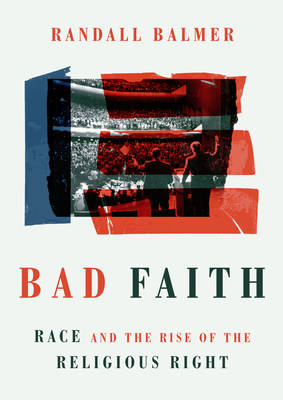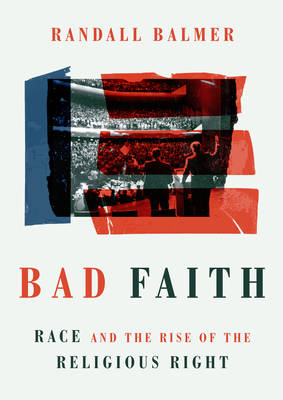
En raison d'une grêve chez bpost, votre commande pourrait être retardée. Vous avez besoin d’un livre rapidement ? Nos magasins vous accueillent à bras ouverts !
- Retrait gratuit dans votre magasin Club
- 7.000.000 titres dans notre catalogue
- Payer en toute sécurité
- Toujours un magasin près de chez vous
En raison de la grêve chez bpost, votre commande pourrait être retardée. Vous avez besoin d’un livre rapidement ? Nos magasins vous accueillent à bras ouverts !
- Retrait gratuit dans votre magasin Club
- 7.000.0000 titres dans notre catalogue
- Payer en toute sécurité
- Toujours un magasin près de chez vous
19,95 €
+ 39 points
Récompenses
Description
What really gave rise to the Religious Right?
There is a commonly accepted story about the rise of the Religious Right in the United States. It goes like this: with righteous fury, American evangelicals entered the political arena as a unified front to fight the legality of abortion after the Supreme Court's 1973 Roe v. Wade decision. The problem is this story simply isn't true. Bad Faith recounts how it was in fact the elimination of tax-exempt status for racially discriminatory Christian institutions, like Bob Jones University, that galvanized evangelicalism into a political force. Only later, when something more palatable was needed to cover for what was becoming an increasingly unpopular position following the civil rights era, was the moral crusade against abortion made the leading issue. Through exhaustive research and trenchant historical analysis, Randall Balmer exposes the ingrained priorities of the Religious Right movement and uncovers the roots of coded evangelical watchwords like "religious freedom" and "family values"--helping to explain, in part, what this movement has become.Spécifications
Parties prenantes
- Auteur(s) :
- Editeur:
Contenu
- Nombre de pages :
- 141
- Langue:
- Anglais
Caractéristiques
- EAN:
- 9780802879349
- Date de parution :
- 10-08-21
- Format:
- Livre relié
- Format numérique:
- Genaaid
- Dimensions :
- 128 mm x 180 mm
- Poids :
- 217 g

Les avis
Nous publions uniquement les avis qui respectent les conditions requises. Consultez nos conditions pour les avis.








